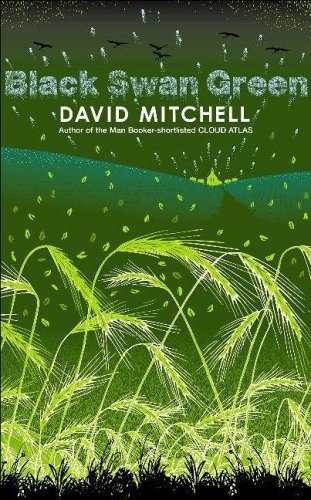This is a truly exceptional book!
And, before I discuss the book, a truly exceptional reading of it by a chap called Chris Nelson. Now, I don’t know who Chris Nelson is. I have googled his name idly but I have no clue. I do not know his age or where he is from.
But he is the absolutely perfect voice for this book: a thirteen year old boy from Worcestershire in 1982. I mean, seriously, the accent is so authentic it must be genuine! And the sense of character, of knowingness and innocence and ignorance is astounding. I can’t believe Chris Nelson is 13, but I wholly believe his voicing as a 13-year-old.
There have been a couple of downloads from Audible.com where the voice has been a barrier but here it is spot on. When I read the last few places, it was in Chris Nelson’s voice!
Chris Nelson reads the narration is Jason Taylor in this first person story. It is – as Wikipedia claims – a Bildungsroman although not in the board sweep that we might expect from reading Great Expectations. That novel follows a life; Black Swan Green follows Jason Taylor for a mere year. It is a focused and tight structure but the boy we see at the beginning of the novel is very different to the young man we see at the end.
Taylor’s narrative voice, created through Mitchell’s language, drives the book. Mitchell creates a wholly convincing voice for me: the use of colloquialisms, some of which seem specific to the Worcestershire area and some specific to the 1980s; the pattern of language; the slightly geeky enumerating of the details of his world; the litany of the listing of his friends; the sometimes clumsy and sometimes startlingly beautiful attempts to poeticise the world around him; the balance between revulsion, fear and fascination with girls (and breasts). All these details and no doubt more that I have forgotten created the voice perfectly. And matched with Chris Nelson’s voice. As close to perfect as you could hope for.
And the world that Mitchell creates of 1982 through Jason Taylor’s eyes is superbly done. I know much of the novel is at least semi-autobiographical: Mitchell would have been 13 in 1982 as well; he shares Taylor’s stammer; he too was brought up in Worcestershire. Therefore, the realism of the world is understandable. And, as I would have been ten in 1982, completely convincing and recognisable.
The casual bullying of the school scenes; the arrogance and smirks of boys getting one over on the student teacher; the petty hopes and devastating tragedies that pattern Jason Taylor’s year; the slow disintegration of his parents’ relationship. The cultural and historical references. The Daily Mail – which shifts in Taylor’s mind from being accepted as gospel truth to a more appropriately critical stance. The Falkland’s War. His older sister Julia’s presence. The unspoken but bitter tensions between Jason’s family and Uncle Brian and Aunt Alice and their pretentious prig of a son, Hugo.
It is perhaps possible to say that there are a myriad of Jason Taylors in the book: there’s the unborn twin, the voice of chaos urging him to misbehave or rebel; there’s maggot urging him to hide and cave in to the bullies, the ‘loser’ persona that some kids try to force onto him; there’s Hangman, the embodiment of the stutter; there’s Eliot Bolivar, the somewhat pretentious but promising poet. Perhaps the book is as much an account of Taylor balancing or choosing between these voices and personas as anything else.
There are a few incidents that did strike me as slightly artificially shoehorned into the narrative. Madame Cremmelink’s forays into mentoring Jason’s poetry and his stumbling into a gypsy encampment in particular.
But these are minor quibbles.
Very minor.
There are a myriad of standout moments in the book but my absolute star moment was Jason trying out for The Spooks – the local ‘gang’ of cool kids. His initiation gave him 15 minutes to run through a string of back gardens and we overhear a sequence of conversations and witness tableaux of other characters and their families. It is masterfully done: we see tenderness and humanity and depth in some of the more minor characters that flesh them out beautifully.
And beautiful is absolutely the right word for this book: it is convincing, credible, honest and – above all – beautiful




Thank you for your very kind review and for liking the book so much it really was a pleasure to do. To find people enjoying makes the work worthwhile.
LikeLike
[…] Black Swan Green by David Mitchell, which was a sublime recreation of what I have to describe as a historical period when I was growing up, as seen through the eyes of a young man of about my age; […]
LikeLike
[…] Black Swan Green, David Mitchell […]
LikeLike
[…] Black Swan Green, David Mitchell […]
LikeLike
[…] a little hit-and-miss for me, but when he has a “hit” – like The Bone Clocks or Black Swan Green – they are […]
LikeLike